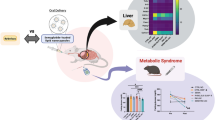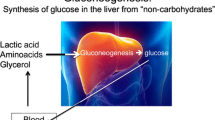Summary
Background Background Numerous studies have shown that dietary plant sterols (phytosterols and phytostanols) and their esters can decrease cholesterol absorption. However, few researchers have examined the effects of plant sterols on cholesterol absorption and synthesis using stable isotope tracers, instead of relying on endogenous pathway precursors. Further, we have worked with non-esterified lecithin-solubilized stanols as opposed to the more frequently studied esterified sterols and stanols. The vehicle was an oil-in-water liquid emulsion rather than the more common spread vehicle typically employed. Aim of the study To determine the effects of relatively low doses of lecithin-solubilized non-esterified stanols in liquid emulsions on cholesterol absorption and synthesis in mildly hypercholesterolemic subjects. Methods In a randomized, double blind crossover design, 12 mildly hypercholesterolemic men received either a free phytostanol supplement (3 g/d in 3 servings) or a control treatment for 3 days. Cholesterol endogenous synthesis rate was determined using the rate of incorporation of deuterium from body water into newly formed cholesterol molecules. Cholesterol absorption at the intestinal level was determined using the dual isotope method using 13C cholesterol injected intravenously and 18O cholesterol given orally. Results Cholesterol absorption was 55.7 ± 6.5 % for the control and 33.5 ± 5.3 % for the phytostanol treatment. This massive reduction of the cholesterol absorption did not induce, on average, a difference in cholesterol endogenous synthesis which was measured at 0.074 ± 0.0015 pool/d for plant sterols and 0.0736 ± 0.0015 pool/d for controls (p > 0.05). Conclusions The results demonstrated that lecithin-solubilized stanols administrated during a short period of time (3 days) in an oil-in-water emulsion can dramatically decrease cholesterol absorption, without a consistent, concomitant increase in synthesis, which is highly suggestive of effective LDL cholesterol lowering. The effects of synthesis should be verified in a longer study with more subjects.
Similar content being viewed by others
Author information
Authors and Affiliations
Additional information
Received: 17 September 2001, Accepted: 17 December 2001
Rights and permissions
About this article
Cite this article
Gremaud, G., Dalan, E., Piguet, C. et al. Effects of non-esterified stanols in a liquid emulsion on cholesterol absorption and synthesis in hypercholesterolemic men. Eur J Nutr 41, 54–60 (2002). https://doi.org/10.1007/s003940200008
Published:
Issue Date:
DOI: https://doi.org/10.1007/s003940200008




